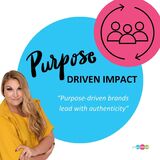In a world where attention spans are short and digital content is everywhere, businesses are under increasing pressure to communicate clearly and connect meaningfully. Yet one of the most common misunderstandings among growing organisations and purpose-led enterprises lies in confusing branding with marketing.
According to Get Published, an established Cape Town-based PR agency that works closely with small businesses, NGOs and social enterprises, this confusion can lead to short-term wins but long-term challenges. Understanding the distinction between branding and marketing and how they work together is vital for building not just visibility, but credibility and loyalty.
Branding: The Foundation of Trust and Identity
Branding goes beyond design, logos, or slogans. It’s the perception people have of your organisation shaped by what you stand for, how you communicate, and the emotional connections you create over time. It’s a long-term, strategic process that defines who you are and why you matter.
“Your brand is your promise to your audience,” says Nadia Hearn, founder of Get Published. “It’s what people say about you when you’re not in the room. If you want to build something meaningful that lasts, branding is where it starts.”

While branding can often feel intangible, its role is deeply practical. A strong brand provides internal clarity and external consistency. It helps teams make decisions aligned with values, and it enables audiences to form emotional ties that go far beyond products or services.
Marketing: Driving Awareness and Action
Marketing, on the other hand, is the execution—how an organisation promotes its offerings and engages with its audience in real time. Whether through digital campaigns, email newsletters, press coverage or paid media, marketing’s role is to generate interest, drive conversions, and keep the business visible and relevant.
“Marketing is where you show up,” says Hearn. “It’s responsive and ever-changing. It helps you meet your audience where they are, but without a strong brand behind it, the message can become diluted or forgettable.”
Marketing strategies often shift based on trends, campaign goals or platform algorithms. Branding, by contrast, is slower to change—anchored in the long-term purpose and personality of the organisation.
Side-by-Side Strategic Overview
| Branding | Marketing |
| Defines who you are | Promotes what you do |
| Long-term and strategic | Short to mid-term and tactical |
| Creates emotional connection | Drives visibility and engagement |
| Evolves slowly | Responds quickly to trends |
| Builds loyalty and trust | Delivers measurable outcomes |

When Strategy Meets Storytelling
The most successful organisations understand that branding and marketing are not opposing forces they’re complementary. Marketing might drive someone to click on your ad, but branding is the reason they stick around. Branding inspires word-of-mouth, repeat engagement, and lasting advocacy.
This is especially true for organisations working to make a positive impact. Purpose-driven enterprises are held to a higher standard they must demonstrate integrity, authenticity and clarity. Consistent branding helps meet those expectations, while thoughtful marketing ensures the message is heard.
This strategic balance should be at the core of every campaign. “Our work starts with purpose,” says Hearn. “If we understand the values behind a brand, we can help them communicate with impact—whether through media relations, digital content or community engagement.”
The Takeaway
For business owners and key management who want more than quick wins, understanding the difference between branding and marketing isn’t just helpful – it’s essential. Marketing gets your message out. Branding ensures that message is meaningful, memorable and aligned with your values.
As audiences become more discerning, authenticity becomes your most valuable asset. Investing in both branding and marketing – thoughtfully and strategically is what separates noise from resonance, and followers from advocates.
For more PR and marketing communications insights sign-up for the Get Published newsletter at www.get-published.co.za or follow Nadia Hearn https://www.linkedin.com/in/nadiahearn.





























